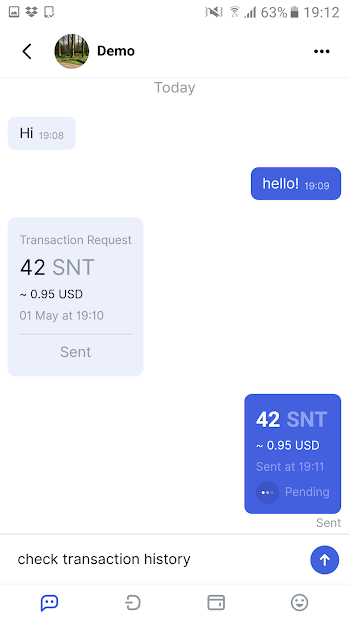The Status network today released a fork of the Whisper messaging protocol designed to make it more scalable.
Whisper is a peer-to-peer communication protocol, built on Ethereum, that launched in 2016. It allows decentralized applications to communicate with each other, and also functions as a messaging protocol.

The fork, called Waku, can support 10,000 daily active users—ten times as many as its predecessor—with the hope of making its protocol more secure than ever.
“It helps the entire network because the more peers in the messaging network, the more censorship-resistant and usable it ultimately becomes,” Jonny Zerah, who head’s Status’s marketing efforts, told Decrypt.
According to its Wiki page, Whisper’s advantage over conventional messenger apps (like WhatsApp) is that two correspondents need know nothing about each other apart from a hash. A hash is a long string of alphanumeric digits calculated through a complex process.
Additionally, because it’s a peer-to-peer protocol, it can’t be shut down easily. “The client-server model,” like WhatsApp’s, “introduces centralized choke points which can lead to censorship, data leaks, and even become attack vectors,” said Zerah. If one server is compromised, then that could put its users’ personal information at risk.
But Whisper, and now its fork, Waku, hides the location of the sender and receiver when sending messages. An encrypted version of the sender’s message is broadcast to multiple people in the network, which bounces around the network before arriving at its intended recipient. This makes it good for privacy.
Bigger and Better
The problem with Whisper is that, when more people use the app, it becomes more resource-intensive.
As Whisper reaches around one thousand daily active users, it uses 100 megabytes per day. That number quickly increases as more people join the network, draining data and battery. This is partly because Whisper broadcasts a lot of unnecessary information, said Status.
But Waku doesn’t broadcast as much unnecessary information as Whisper. “This update helps those with resource-restricted devices the most at this point. Those who are using older smartphones and with limited data plans,” said Zerah.
The tradeoff is privacy. Waku nodes receive a lot less information that’s not intended for them—the sort of information that’s bounced around the network to obfuscate users’ identity. As a result, it’s slightly easier to work out the identity of a user.
Turns out privacy does come at a cost.
 decrypt.co
decrypt.co